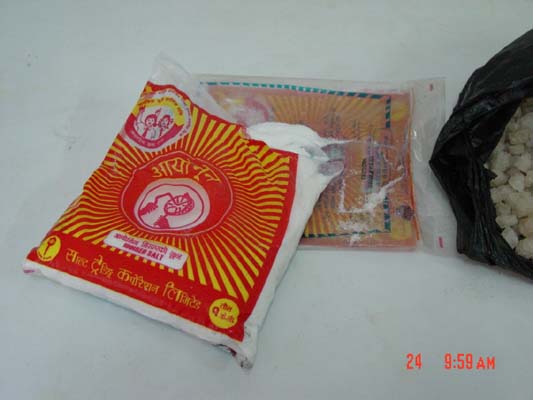
IDD
Target 1: To virtually eliminate iodine deficiency disorders by the year 2017.
- Strengthen the implementation of Iodized Salt Act, 2055 for regulation and monitoring of iodized salt trade to ensure that all edible salt is iodized
- Encourage better storage practices to prevent iodine loss
- Ensure systematic monitoring of iodized salt
- Increase the accessibility and market share of iodized packet salt with ‘two‐child’ logo
- Create awareness about the importance of use of iodized salt for the control of IDD through social marketing campaign
- Develop IDD monitoring system and implement the monitoring survey at national level
Prevention and Control of Iodine Deficiency Disorder
- Nepal Demographic Health Survey-2011 shows that about 80 per cent of Nepali households have access to iodised salt.
- Iodine deficiency, which leads to decline in cognitive capacity and brain damage, is most lethal to foetuses and young children. Inadequate consumption of iodine increases chances of miscarriage and stillbirth.
- According to the UNICEF, 30 per cent of the households in the developing world are not consuming iodised salt and 41 million infants and newborns are at the risk of iodine deficiency.
- The national survey to study the impact of iodine deficiency and availability of iodised Salt in Nepal-2007 found that 23 per cent of Nepali households were still consuming salt with inadequate iodine content.
- The survey further found that 84.2 per cent of the salt being sold at retail outlets around the country contained iodine. only 67.8 per cent salt in retail stores had iodine content more than the recommended 30 parts per million (ppm). The survey stated that Nepal’s ecological and biophysical conditions have made Nepalis more susceptible to iodine deficiency.


